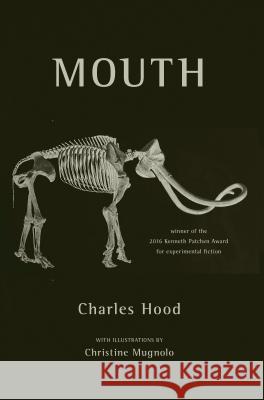Mouth » książka
Mouth
ISBN-13: 9781884097744 / Angielski / Miękka / 2017 / 104 str.
Charles Hood has a unique voice and style. Sentences are sometimes fragmented on edge of abstraction, then sharp, staccato, poetic and lyrical. It is clear from the opening passages that the writer is at the wheel and in total control. I did not know where I was being taken, but I was excited to be going on this ride. The story is absorbing on several levels. It's a tale told in the voices of two women, Chica and Bela. The former is the main narrative voice -- her text appearing at the top of each page, while Bela's appears at the bottom (usually only a sentence or two.) Bela is also credited as the illustrator whose portraits of Chica appear interspersed throughout. Pages contain a large white space separating the two voices. For me, this area represents what is alluded to but not revealed in the text, either backstory or undescribed events in the present narrative. The reader is invited to fill this space, imagining all that is hidden. Bela, a museum curator, asks Chica to accompany her on a trip from London to the Soviet Union - Siberia -- in search of buried mammoth tusks and bones. We discover that the women are lovers poised at the entrance to a fragile relationship. The narrative reveals enigmatic snippets of Chica's broken past, her physical (and psychic) injuries (a broken jaw); her relationship with her father; and gnawing feelings of inadequacy, of being ugly and undesirable. The prehistoric bones are metaphoric talismans as Chica is searching within herself and exploring the connection to her own injuries: Deep inside, the bones hurt, benthic connections of ache and groan. On the outside, though, the skin is numb but supple and yet you still can't smile-the muscles have been cut, plus nothing connects up anymore. Your brain sends messages in English but your lips, chin, sides of your face, they speak Urdu. They are singing their own song and not listening. They don't need you anymore. The writer manages to uncover raw, visceral emotions, digging below the surface of the relationship and, ultimately, reaches the marrow. MOUTH is an unconventional love story -- at turns surreal, dreamlike, and extraordinarily moving. -- Derek Pell, from his judge's encomium











